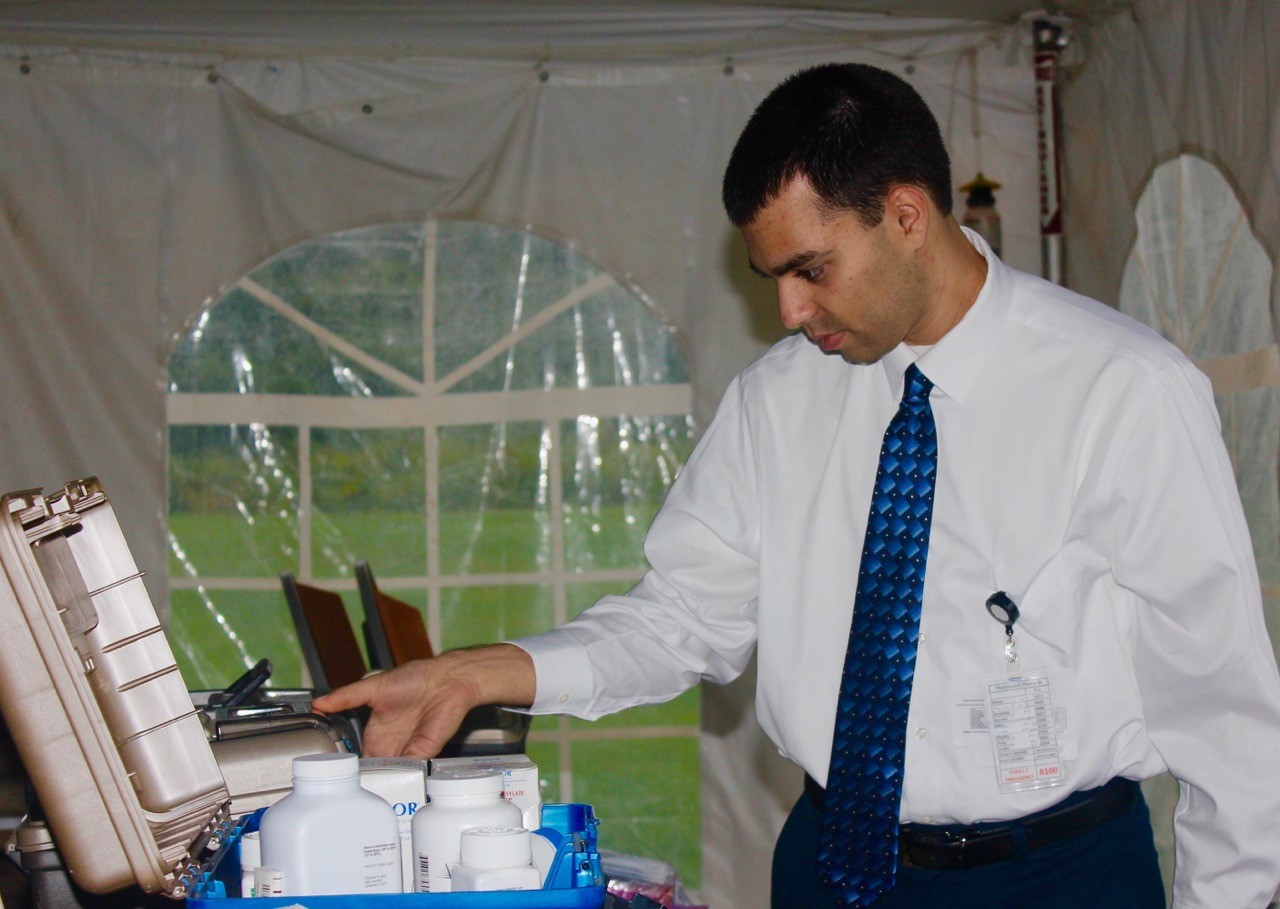Each year for the past two decades — from early summer when the temperatures are warm and it’s not dark outside until well after 8:00 p.m. until mid-fall when evenings are chilly and the sun sinks quickly — a dedicated cadre of healthcare workers has arrived at farms and orchards throughout Connecticut to provide valuable assistance to a largely anonymous population.
These are the volunteers — some students, some licensed professionals — who run the UConn Migrant Farm Worker Clinics. The clinics are sometimes held under tents or in farm buildings and sometimes outside under the sky. At each site, basic health evaluations are conduced, care of routine injuries and illnesses takes place, and occasional referrals for more complex issues are made.
The majority of the patients are seasonal or migrant workers who work on the state’s farms and orchards from planting through harvest. Many come from Jamaica or Mexico. Others come from states with robust agricultural traditions such as Florida or North Carolina. They may be US citizens, legal permanent residents, seasonal laborers working on guest worker visas, or undocumented.
Most are male, Spanish speaking, and between 21 and 44 years of age. However, the workers include youngsters under age 20 as well as some seasoned individuals who toil in strenuous agricultural jobs well beyond the standard age for retirement.
Connecticut is similar to the rest of the nation in that the success of its agricultural industry depends — literally — on the health and well-being of these workers. And, like any other group of people, these individuals require medical assistance from time to time. But, with minimum wage jobs, yearly incomes of about $10,000, a lack of transportation, and no health insurance, their access to doctors’ offices, or even hospital emergency departments, is limited.
That is why the UConn Migrant Farm Worker Clinics play such an important role in the continued well-being of this vital, and generally under served, population.

UConn and the Connecticut Area Health Education Center (AHEC) established the first mobile farm clinic in 1997. Clinics are held from June through the middle of October throughout the State. They are under the supervision of licensed physicians, but are largely staffed and run by UConn students representing the Schools of Medicine, Dental Medicine, Pharmacy, and Nursing, as well as departments such as Kinesiology.
John Aurora ’17 (Pharm.D.) is a good example of what these volunteers share in common. He sees a need and feels compelled to do what he can for people for whom even basic medical care is hard to come by.
Aurora is a community pharmacy resident at St. Vincent’s Medical Center in Bridgeport. He first volunteered at the clinics while a student in the School of Pharmacy, and has returned this year to lend a hand as a pharmacy preceptor.
He says, “I have an interest in chronic disease state management, transitions of care, patient counseling, and teaching. My ultimate goal is to practice in an ambulatory/community care clinic where I can work closely with others on the medical team and my patients. Volunteering at these clinics gives me a chance to develop my skills while helping people who really need it.”
Funding for the clinics comes from the federal voucher program for migrant laborers and is administered regionally by the Connecticut River Valley Farm Worker Health Program. The clinics also depend on donations of goods and services from various private organizations.

As an example, program coordinator of CT AHEC Shannon McClure cites both CVS Health and Walgreens, Co. as companies that stepped in with assistance this year.
“These companies donated supplies, they gave discounts on some of the most commonly used items we need to stock the clinics, and they were more than willing to work with us as we tried to meet the needs of our clients,” McClure said.
She added, “If we are to continue to hold these clinics, to keep our farm workers healthy, and to support our agricultural industry in general, we will need both the physical presence of our volunteers and the monetary and practical support of our donors more than ever in the years to come.
“Saying ‘thank you — we couldn’t do it without you,’ doesn’t seem like enough. But, it’s really heartfelt from all of us who are involved in running these clinics from year to year.”



